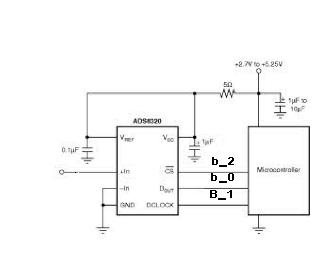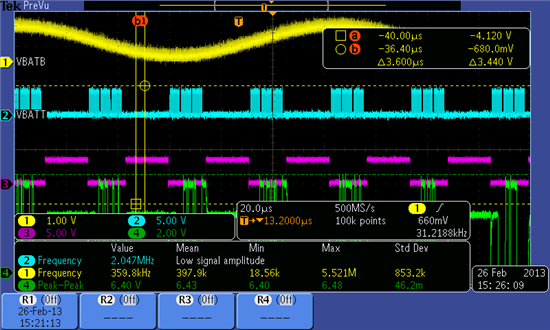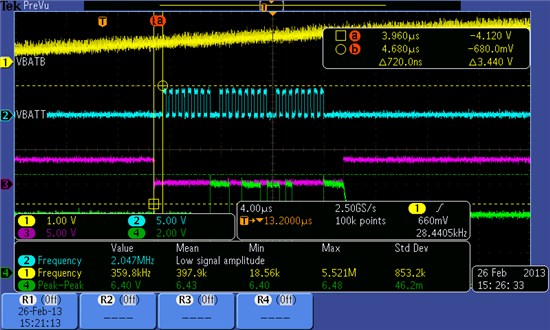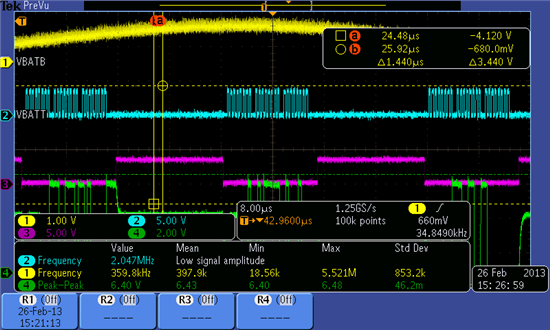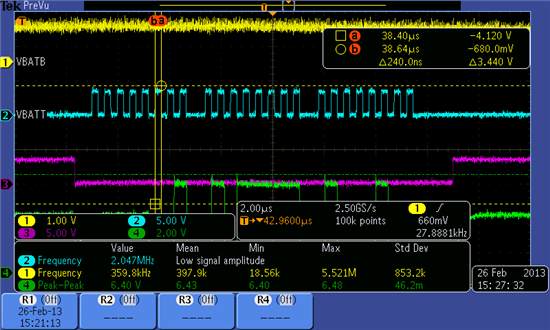I have a problem with the ADS8320. This it only reads discreet values (for example 32,64,128,256,512,1024,2048, etc.) when it varies my signal of entrance. I try to use a TLC4541 and have the same problem. My comuniacion by SPI works well when proving it with a ADS7816. Some idea?
-
Ask a related question
What is a related question?A related question is a question created from another question. When the related question is created, it will be automatically linked to the original question.


